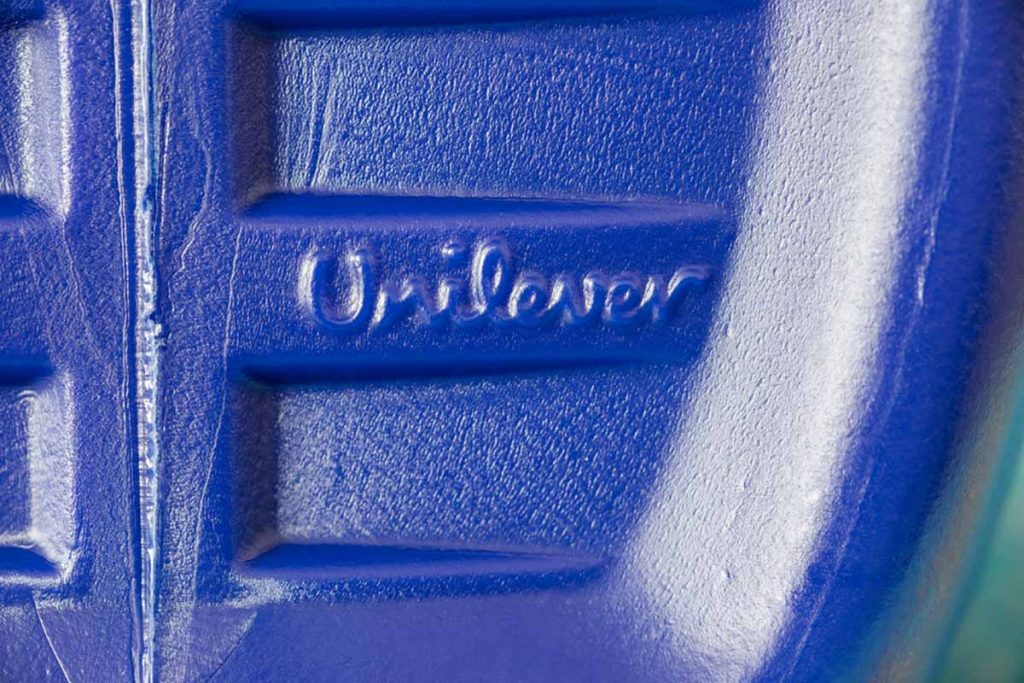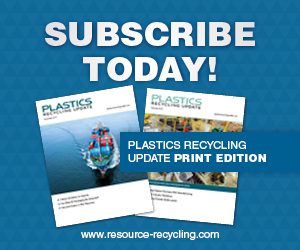
Global brand owner Unilever is now using about 75,000 metric tons of post-consumer plastic in its packaging each year. | Konektus Photo/Shutterstock
Global companies such as Keurig Dr Pepper, Dow and Mars recently announced their intentions to bolster the use of PCR. The following is a roundup of several notable news items:
Shifting to RPET bottles: Keurig Dr Pepper will shift its Snapple and CORE drink brands to using 100% RPET bottles. According to Beverage Daily, across Keurig Dr Pepper’s more than 125 brands, 20% of the packaging is post-consumer content. By shifting the Snapple juice and tea and CORE bottled water brands to RPET, the PCR percentage will jump to 24%.
Recycled-content shrink wrap: Dow announced it is now marketing a shrink film made with 40% PCR. The film, which is designed for retail and logistic shrink film applications, is made with PCR pellets supplied by reclaimer Avangard Innovative. Midland, Mich.-based Dow calls the film its first “PCR-rich resin for collation shrink film in North America.” In January, Dow and Texas-based Avangard first announced the partnership to supply recycled LLDPE and LDPE.
Chemically recycled PP: Brand owner Mars announced it will use recycled PP in pet food packaging starting in 2021. Plastics producer SABIC will supply recycled PP derived from a pyrolysis process, and packaging supplier Huhtamaki will convert it into flexible packaging. Mars will pilot the project in Europe this year, increasing the amount used in 2021.
RPET thermoforms: Fabri-Kal, one of the largest thermoformers in North America, is now selling a line of containers made with 20-50% post-consumer PET. The Recycleware Containers brand includes on-the-go boxes, round deli containers and square deli containers, all with at least 50% RPET, as well as dessert containers with at least 20% RPET.
PCR appetite growing: Global brand owner Unilever is now using about 75,000 metric tons of post-consumer plastic in its packaging each year, according to Plastics News. That equates to over 10% of the company’s plastic footprint. Unilever’s goal is to use at least 25% PCR by 2025, according to the article, and it expects its PCR usage to double over the next 12 months.
More stories about brand owners
- Retailers launch CA campaign to ditch single-use bags
- New report explores the future of CPG packaging goals
- Unifi pushes for textile recycling progress



